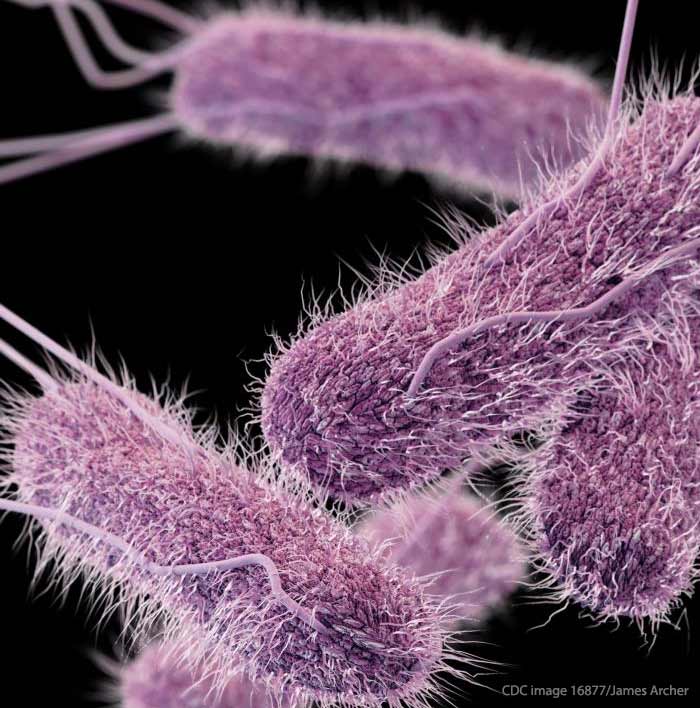A new study conducted at McMaster University confirms that people who suffer from food poisoning by a particular bacteria may be at increased risk for developing Crohn’s Disease, also known as inflammatory bowel disease (IBD). In every Salmonella outbreak over the past four years, Food Poisoning Bulletin has stated that one of the long term complications from one of these illnesses is IBD.
 Researchers found that infectious gastroenteritis (food poisoning) caused by a common food poisoning bacteria increases and accelerates the growth of adherent-invasive E. coli (AIEC). The scientists used a mouse model of Crohn’s Disease. Even after the mouse had cleared the food poisoning bacteria from their bodies, researchers still found increased AIEC levels in the gut. In the study, the researchers used Salmonella Typhimurium or Citrobacter rodentium.
Researchers found that infectious gastroenteritis (food poisoning) caused by a common food poisoning bacteria increases and accelerates the growth of adherent-invasive E. coli (AIEC). The scientists used a mouse model of Crohn’s Disease. Even after the mouse had cleared the food poisoning bacteria from their bodies, researchers still found increased AIEC levels in the gut. In the study, the researchers used Salmonella Typhimurium or Citrobacter rodentium.
Western societies have a much higher rate of IBD than the rest of the world. Most scientists and doctors think that bacteria in the gut participate in the development of human bowel diseases. Chronic inflammation is driven by microbial stimulation of the mucosal immune system.
AIEC are pro-inflammatory and may play a role in maintaining chronic inflammation. Acute infectious gastroenteritis creates an inflammatory environment in the gut that drives AIEC expansion.
Crohn’s disease is a debilitating illness that can lead to weight loss and malnutrition. It involves inflammation in both the small and large bowel. Symptoms of Crohn’s disease include abdominal pain, severe diarrhea, and fatigue.
People suffering from this disease have an increased risk of colorectal cancer and an increased risk of premature death, according to Dr. Brian Coombes, senior author of the study and a professor in the Department of Biochemistry and Biomedical Sciences at McMaster University. About 700,000 people in the U.S. develop Crohn’s disease every year. Most people get sick in their teens into their mid-thirties.
The strange thing about this link between Crohn’s disease and food poisoning is that Crohn’s can occur years after someone has completely recovered from food poisoning. Researchers believe that resident gut microbes perpetuate inflammatory reactions. Several factors can present a “tipping point,” creating a “sustained imbalance of intestinal homeostasis.” Genetic susceptibility is one factor; contracting a foodborne illness is another.
This environment in the gut becomes favorable to colonization by AIEC. In fact, AIEC can be found in healthy people, which confirms that food poisoning can be a risk factor for IBD. It’s also possible that food poisoning makes a person more susceptible to acquisition of AIEC through a loss of colonization resistance.
On a more hopeful note, the scientists said that the long latency period between recovery from food poisonoing and Crohn’s disease onset could create opportunities to mitigate the disease risk. Further study will be needed on this issue.




